Written by Edward Whelan, Contributing Writer, Classical Wisdom
Solon (640-560 BC) was one of the most important men in the Classical world. He was in part responsible for setting Athens on its road to greatness. He helped to stabilize the city-state and laid the foundations for the future Athenian Empire. Most importantly of all, he laid the foundations for Athenian democracy, which continues to influence modern-day democracies.
The early years of Solon
Solon was believed to be the son of Execestides, who was a member of the nobility. The family was distinguished but they had fallen on hard financial times. His family circumstances gave Solon a unique insight into Athenian society.
He received a good education and was an acclaimed poet. His poetry was famous in Athens and it includes verses on political issues and even his love affairs. During the war with Megara, Solon was given an important command and he carried out his duties with bravery and great skill. According to some sources, Solon was also a merchant and this allowed him to learn something about the world outside Greece.
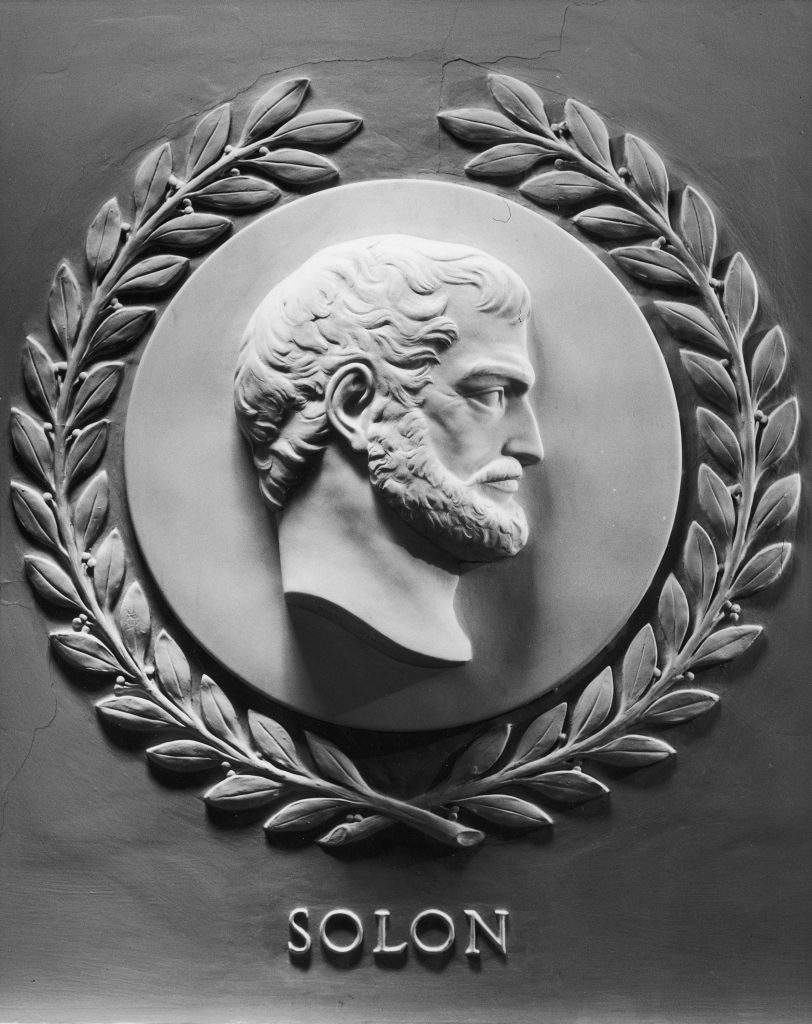
Marble relief of Solon (1950), located at the U.S. Capitol in the House of Representatives Chamber.
Solon and his rise to power
Sometime around 590 BC, Solon was appointed archon of the city and became the de-facto ruler. The archon had a range of legal, military, and political powers. However, the Athenians provided Solon with extraordinary powers to deal with the serious political and social-economic crisis that was blighting the city.
At the time, Athens was divided between aristocrats who dominated the political life of the city, and a rising class of merchants and entrepreneurs who, though wealthy, were excluded from power. This caused a great deal of friction in the city-state and it was widely feared that these tensions could lead to civil strife and even outright civil war.
Meanwhile, the majority of the population was powerless and lived on the verge of starvation. Many were dependent on the aristocracy who owned the land. The poor often became indebted to them and were sold into slavery if they failed to pay their debts.
A previous archon, Draco, had introduced a law code that favored the rich and was very harsh on any wrongdoer. From Draco we get the word Draconian, meaning harsh and brutal. Solon was charged with reforming Athens.
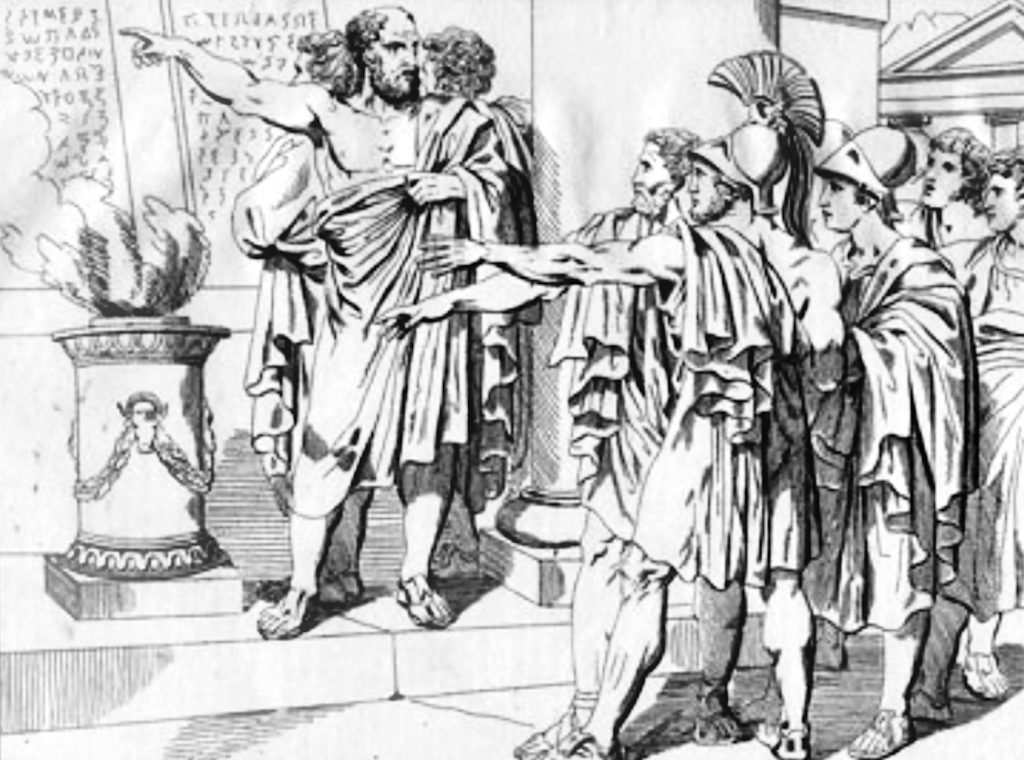
“Solon demands to pledge respect for his laws”, book illustration (Augsburg 1832)
Solon and his reforms
Solon somehow managed to get the aristocrats to end the practice of debt-slavery. He also outlawed the practice of fathers using their sons and daughters as security when taking out a loan. This was transformative and it helped to end debt-bondage. Solon sought to change Athenian society and to make it more equal and more stable. He introduced four classes of inhabitants and people were divided based on their wealth. Taxation was based on which class a person belonged to.
The four classes all had different political rights, and this was to reflect the amount of tax that they paid. The highest class, the pentakosoimedimnoi, had the most political rights, followed by the hippeis.
Though the poor and the artisans had few if any, political rights, they were granted equality before the law and this was a historic change. Solon also introduced an appeal system. In this way, he dismantled the cruel law code of Draco. Athens, as a result of Solon’s innovations, had a very liberal court-system, and this promoted equality and justice in the city-state. All that was retained of Draco’s law code was the punishment for murder.
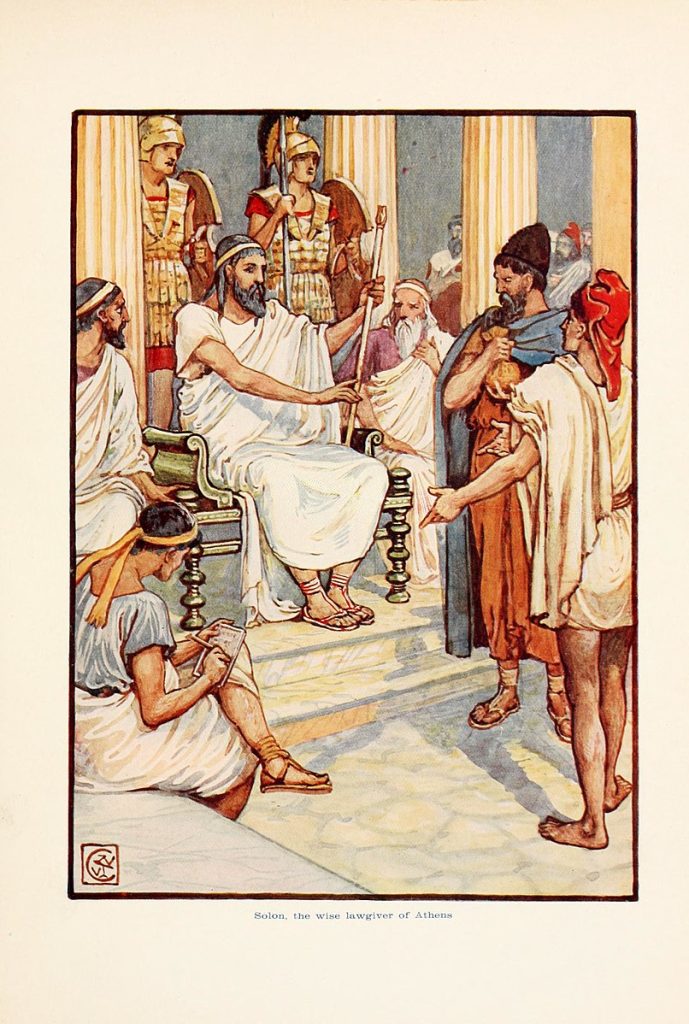
Solon, the wise lawgiver of Athens (Wikimedia)
Solon was also a political reformer. He abolished the aristocracy’s monopoly on power. He introduced a new popular council, whose members could vote on political, diplomatic, and legal matters.
However, the aristocrats dominated a smaller council, and this allowed them to greatly influence politics. Even after Solon’s reforms, the old elite was still inordinately powerful. Not long after the death of the great lawgiver, Athens fell under the control of the tyrant Peisistratos and his sons for several decades.
Ironically, Peisistratos was a relative of Solon, who blamed the Athenians for the rise of the tyrants, because they did not place the good of the city before their selfish interests. Tragically, Solon was to witness the death of democracy in his beloved city and he died in exile.
Many have pointed out that Solon’s reforms were to bear fruit in the 5th century BC when, under Pericles, the city became very democratic.
Solon had been a trader and he took an interest in the economy. He encouraged agriculture and prohibited the export of foodstuffs. This benefitted the economy and food became cheaper. However, he did encourage the export of olives and this became a major industry. Many credit him with the promotion of the Athenian pottery industry, which became a major industry in Attica.
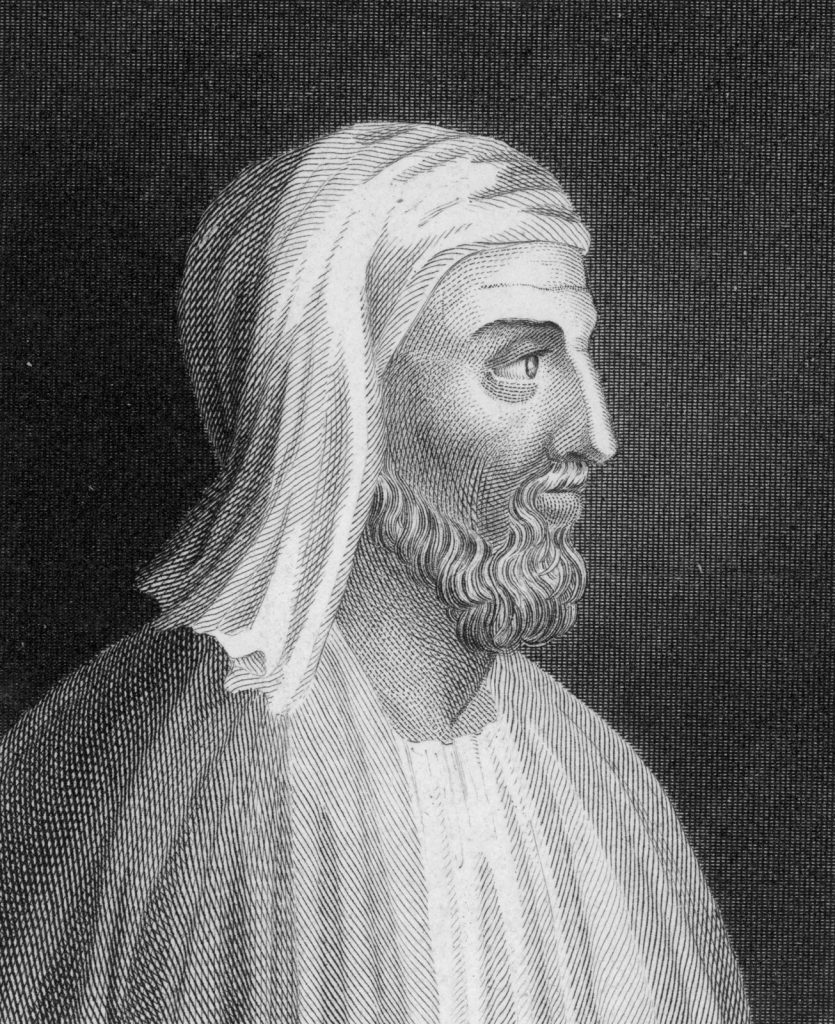
Plutarch, c. 100 CE, the biographer of Solon. Edward Gooch—Hulton Archive/Getty Images
The travels of Solon
After the end of his period of office, Solon did an unusual thing. It is claimed that he visited Midas and Lydia. He was believed to have also traveled to Egypt and learned the lore of the Egyptians. It is believed that he was also the source of the Atlantis legend.
Because of his great wisdom, he was regarded as one of the seven sages of Ancient Greece. His words of wisdom such as ‘count no man happy until he dies’ were very influential in the Classical world. It is believed that he lived to be one hundred years old, but this is probably only a legend.
Conclusion
Solon was crucial in the history of Athens. His foresight and reforms changed the course of Athenian history. Solon can justly be considered as the ‘father of Athenian democracy’ and played a significant role in the development of democratic institutions and systems all around the world. His social, economic, and legal reforms not only influenced the Greek city-state but have influenced societies since the Classical era. Solon, more than anyone, was responsible for the rise of Athens and its Golden Age, which has shaped western civilization down to this day.

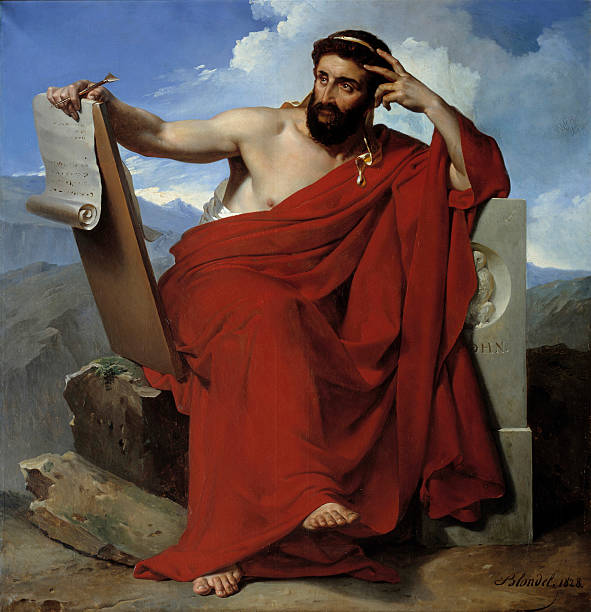








2 comments
Hallo there!
What a man!
A statesman has to be a poet, a historian and a philosopher.
These days they must actually be scientists and mathematicians, as well.
The world world has suffered enough rot because of insanity, belief, indoctrination, ideology etcetera and from insane ideologues…
Hallo there!
What a man!
A statesman has to be a poet, a historian and a philosopher.
These days they must actually be scientists and mathematicians, as well.
The world world has suffered enough rot because of insanity, belief, indoctrination, ideology etcetera and from insane ideologues…
Pieter J (PJ)
Trackbacks
Our apologies, you must be logged in to post a comment.